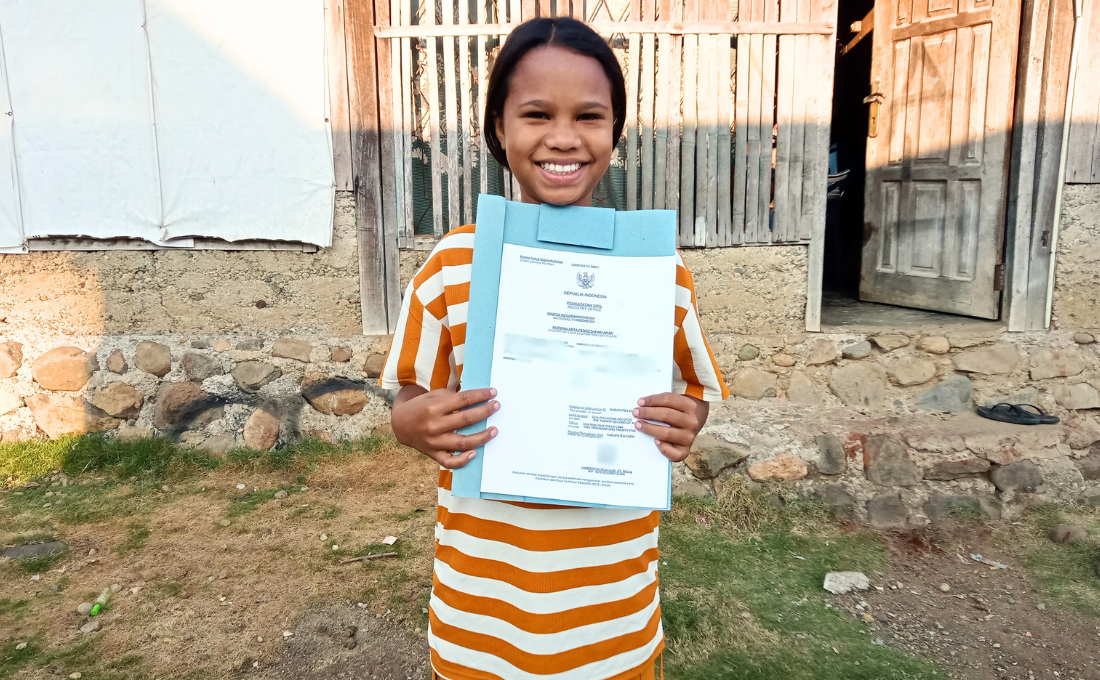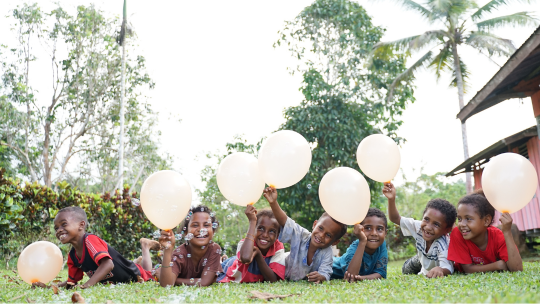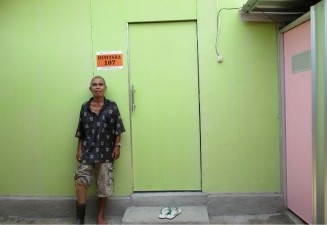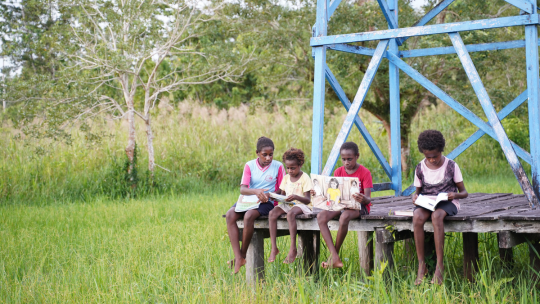Overcoming Birth Certificate Barriers to Achieve Highest Education

Children living in Indonesia's most remote villages face educational challenges that might seem easy to overcome for urban residents. The challenge is the ownership of a birth certificate. This single document can determine a child's educational continuity. Children who do not possess a birth certificate will encounter difficulties when registering for secondary or higher education.
Novita (12) is currently in the 6th grade of primary school. Next year, she hopes to become a secondary school student. She lives in a village in Ende Regency, East Nusa Tenggara. Both of her parents work as farmers daily. "They work on the farm to meet our family's needs, especially to fund my education," says Novita. Her parents hope Novita can achieve the highest possible education, not following their footsteps, as they did not complete secondary school.
However, even at her pre-teen age, Novita still does not have a birth certificate. Moreover, it's not just Novita, but 59% of the children in her village are in the same condition. The obstacles include parents who still feel a birth certificate is not an important document. Yet, having a birth certificate is one form of fulfilling a child's basic rights. Additionally, like Novita's parents, access is the main constraint in managing the birth certificate application process.
"My parents find it difficult to process the birth certificate because travelling to the city is very hard. The access is quite far. Furthermore, my parents' knowledge is limited, so they are less able to manage things like this. Meanwhile, I will continue to secondary school, which requires a birth certificate as a student registration requirement," Novita recounted.
This issue became a spotlight for the village government and Wahana Visi Indonesia (WVI). A child's right to obtain a birth certificate must be fulfilled immediately so that children can continue to access education. The village government, the Church, and WVI collaborated to overcome the constraints of birth certificate ownership for all children in the village. A series of activities, such as socialisation on the importance of birth certificates, data collection, document gathering and verification, up to the issuance of the birth certificates, were carried out. Everything was done collectively in the village. Parents were no longer constrained by access or confused about managing the birth certificate application.
"I am very grateful because now I and my friends have birth certificates. This proves that we are legally recognised as Indonesian citizens. We have been helped to fulfil our basic rights, and we feel protected from all types of violence against children. Especially when the time comes for us to take the final school exams, we are more confident because our educational documents are now complete," Novita expressed.
Currently, 182 children have finally obtained their birth certificates, and 45 of them are still in the process of issuance. The good collaboration between the village government, the Church, and WVI has successfully realised the fulfilment of basic rights for children in one of Indonesia's most remote villages.
Author: Fransiskus Sare (Staff from YAKKESTRA, operating partner of WVI in Ende Regency)
Editor: Mariana Kurniawati (Communication Executive)



